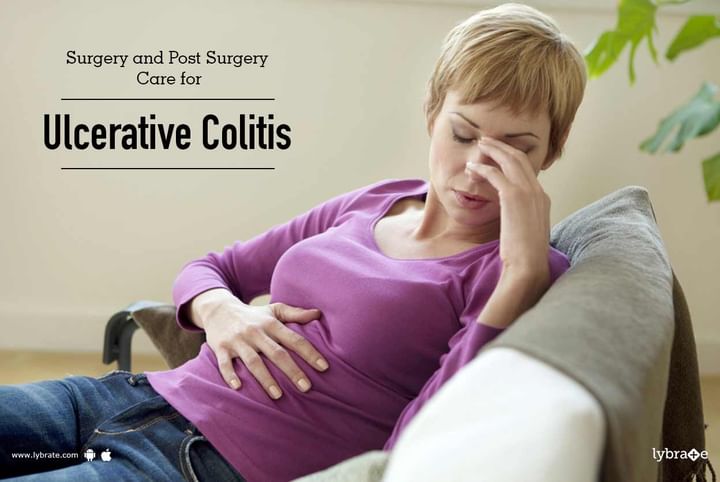Surgery and Post Surgery Care for Ulcerative Colitis
This is a disease that affects the large intestine and the rectum. The Ulcerative Colitis refers to the inflammation in the innermost lining of the large intestine. The main function of the large intestine is to absorb water from indigestible food matter in the body before throwing away any waste. Hence, the large intestine is a vital part of our body. If left untreated, the disease increases risk of colon cancer.
Symptoms:
- Diarrhea with blood or pus: A person suffering from Ulcerative Colitis is likely to suffer from loose stools accompanied with blood or pus.
- Stomach pain and Cramping: In many cases, patients complain of severe stomach pain and cramping.
- Rectal pain: At times, many patients feel pain while sitting or even after a bowel movement.
- Bleeding from the rectum: Bleeding can be observed while passing stools.
The other complications leading to this disease are kidney stones, swelling of the colon, thickening of intestinal walls and blood infection.
Diagnosis:
This disease can be diagnosed by several methods. A simple stool test may be done to check out for bacteria and parasites. A blood test to check the level of C-reactive protein helps determine the inflation rate of the body. Endoscopy, colonoscopy, biopsy are some other methods of diagnosis.
Treatment
- Oral medication: Treatment involves drug therapy or surgery. The first step in treating Ulcerative Colitis will be an intake of anti-inflammatory drugs, but these may have a side effect. Another option is immune system suppressors, which help to bring down the inflammation by suppressing the immune system response. Antibiotics, anti-diarrheal medications, pain relievers are some of the additional drug supplements recommended by doctors.
- Surgery: Surgery plays an important role because this disease is pre-malignant in nature. Depending on the severity of the condition, the medical practitioner may advice surgery. The common methods of surgery are:
- Proctocolectomy and Ileostomy: Proctocolectomy involves removal of the colon in part or whole. Ileostomy is carried out by placing a special bag in the small intestine to collect waste from the body.
- Proctocolectomy and Ileo-anal: Ileo-anal pouch is a bag directly created the small intestine and connected to the anus, for diffusing the stools. As colon is removed Ulcerative Colitis cannot re-occur.
Precautions after surgery
It is very important that the patient takes healthy, sufficient and nutritious food so that bowel movement can be carried out with ease and zero strain. The patient has to restrict lifting of heavy grocery, mowing the lawn, any physical activity that can strain the abdomen and related areas.



+1.svg)
